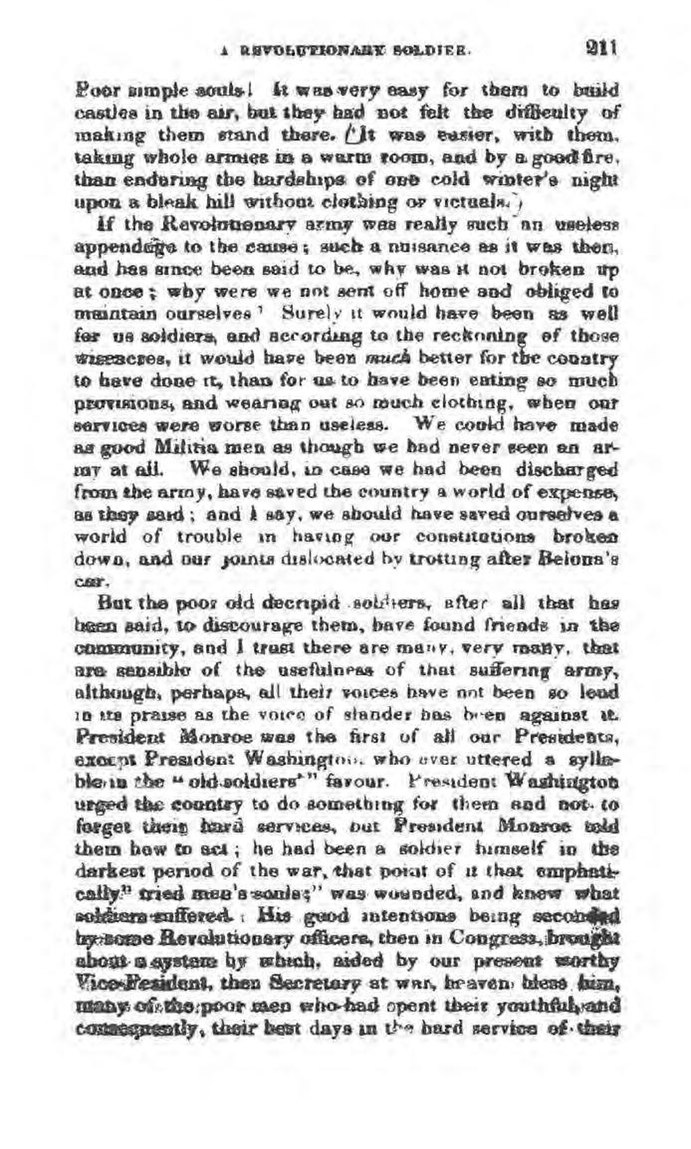Poor simple souls! It was very easy for them to build castles in the air, but they had not felt the difficulty of making them stand there. It was easier, with them, taking whole armies in a warm room, and by a good fire, than enduring the hardships of one cold winter's night upon a bleak hill without clothing or victuals.
If the Revolutionary army was really such an useless appendage to the cause; such a nuisance as it was then, and has since been said to be, why was it not broken up at once; why were we not sent off home and obliged to maintain ourselves? Surely it would have been as well for us soldiers, and according to the reckoning of those wiseacres, it would have been much better for the country to have done it, than for us to have been eating so much provisions, and wearing out so much clothing, when our services were worse than useless. We could have made as good Militia men as though we had never seen an army at all. We should, in case we had been discharged from the army, have saved the country a world of expense, as they said; and I say, we should have saved ourselves a world of trouble in having our constitutions broken down, and our joints dislocated by trotting after Belona's car.
But the poor old decripid soldiers, after all that has been said, to discourage them, have found friends in the community, and I trust there are many, very many, that are sensible of the usefulness of that suffering army, although, perhaps, all their voices have not been so loud in its praise as the voice of slander has been against it. President Monroe was the first of all our Presidents, except President Washington, who ever uttered a syllable in the "old soldiers'" favour. President Washington urged the country to do something for them and not to forget their hard services, but President Monroe told them how to act; he had been a soldier himself in the darkest period of the war, that point of it that emphatically "tried men's souls;" was wounded, and knew what soldiers suffered. His good intentions being seconded by some Revolutionary officers, then in Congress, brought about a system by which, aided by our present worthy Vice-President, then Secretary at war, heaven bless him, many of the poor men who had spent their youthful, and consequently, their best days in the hard service of their
